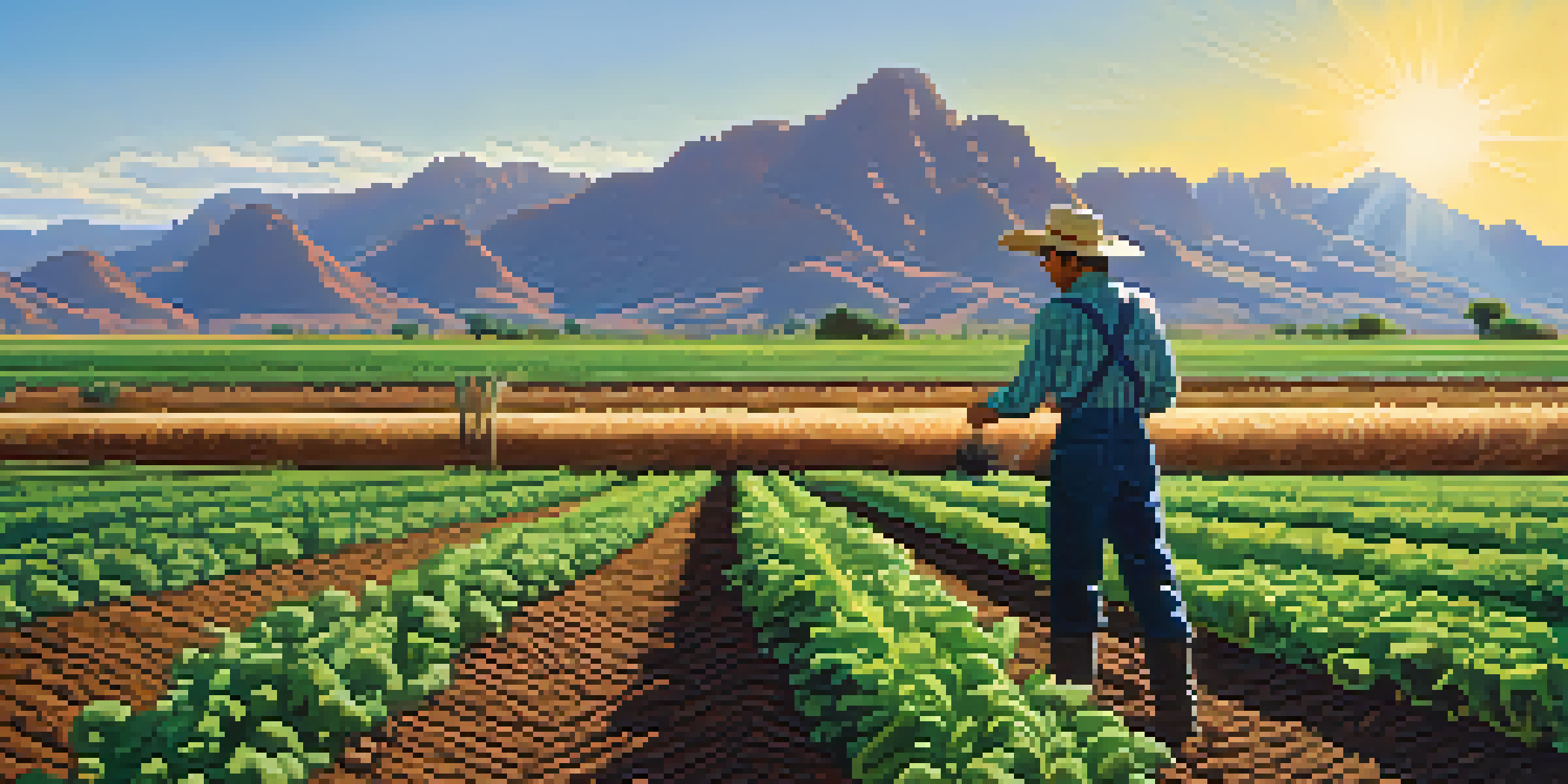The Importance of Soil Conservation in Arizona's Agriculture

Understanding Soil Conservation and Its Importance
Soil conservation refers to practices that protect soil from degradation and erosion. In Arizona, where the climate can be harsh and dry, maintaining healthy soil is crucial for agricultural productivity. Healthy soil not only supports crop growth but also helps retain water, an essential resource in arid regions. Without proper conservation methods, soil can lose its nutrients, leading to diminished agricultural yields and increased reliance on chemical fertilizers.
The Challenges Facing Arizona's Soil
Arizona's agriculture faces unique challenges such as drought, desertification, and urban expansion. These factors contribute to soil erosion and depletion, threatening the sustainability of farming in the region. Farmers often struggle to maintain soil health amidst these pressures, which can lead to lower crop yields and higher costs. Understanding these challenges is the first step toward implementing effective soil conservation strategies.
Soil Conservation is Essential
Protecting soil from degradation is crucial for agricultural productivity and environmental health in Arizona.
Benefits of Soil Conservation Practices
Implementing soil conservation practices can lead to numerous benefits, including improved soil fertility and enhanced water retention. Techniques like cover cropping, crop rotation, and contour farming can help prevent erosion while enriching the soil with organic matter. These practices not only support sustainable agriculture but also contribute to environmental health by reducing runoff and promoting biodiversity. In the long run, healthier soil leads to more resilient farming systems.
Effective Techniques for Soil Conservation
There are several effective techniques that Arizona farmers can adopt for soil conservation. For instance, using cover crops can protect and enrich the soil during off-seasons, while no-till farming reduces disruption to the soil structure. Additionally, implementing terracing on slopes can dramatically minimize erosion. These methods are not just beneficial for the soil; they also enhance overall farm productivity and profitability.
Community Efforts Enhance Success
Engaging local organizations and communities is vital for promoting sustainable soil conservation practices among farmers.
The Role of Technology in Soil Conservation
Technology plays a pivotal role in modern soil conservation efforts. Innovations such as precision agriculture allow farmers to monitor soil health and apply resources more efficiently. Tools like soil sensors and satellite imagery provide valuable data that can inform conservation practices. By harnessing technology, farmers can make more informed decisions that promote soil health while maximizing crop yields.
Community Involvement in Soil Conservation
Soil conservation is not just the responsibility of individual farmers; community involvement is essential. Local organizations, agricultural extension services, and government agencies can provide education and resources to promote sustainable practices. Engaging the community fosters a collaborative approach, enabling farmers to share experiences and strategies. Together, communities can work towards preserving Arizona's soil for future generations.
Technology Boosts Soil Health
Innovations in technology, such as precision agriculture, enable farmers to monitor soil health and improve resource efficiency.
Policy and Support for Soil Conservation in Arizona
Government policies play a critical role in supporting soil conservation efforts. Programs that provide financial incentives or technical assistance can encourage farmers to adopt sustainable practices. Additionally, regulations aimed at reducing land development pressures can help protect valuable agricultural land. Advocacy for soil conservation policies is vital to ensure the long-term health of Arizona's agricultural landscape.
The Future of Agriculture in Arizona Depends on Soil Health
The future of Arizona's agriculture relies heavily on effective soil conservation strategies. As climate change and urbanization continue to impact farming, prioritizing soil health becomes even more essential. By adopting sustainable practices, farmers can ensure that their land remains productive and resilient. Ultimately, protecting soil is not just about agriculture; it's about safeguarding the environment and supporting local economies.